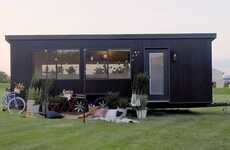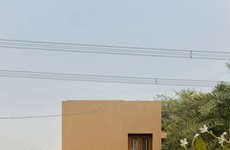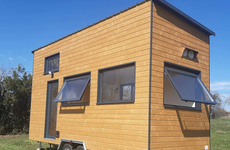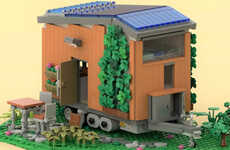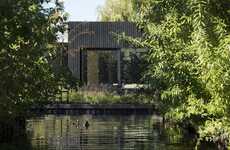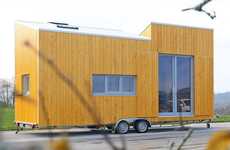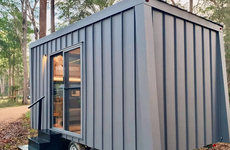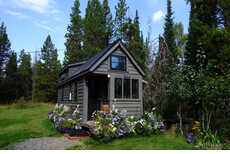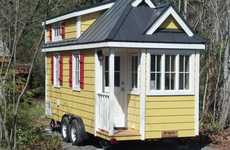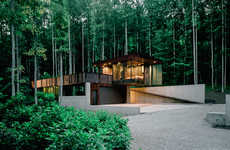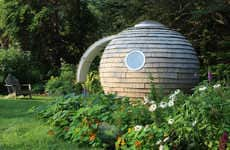
The 'Collaborative Tiny House Project' Teaches Students How to Build a Home
Christopher Magsambol — August 13, 2015 — Eco
References: kickstarter & treehugger
The 'Collaborative Tiny House Project' is teaching students how to build eco residences that can be used for a variety of purposes. Saul Rip Hansen and his team have designed a program that they hope will be used in high schools and middle schools. The curriculum outlines a series of tutorials on how to build a small house.
The inspiration behind the project is sustainability. Going forward, Hansen and his team want students to be more self-sufficient and independent. The act of building a home is also a much smarter long term investment and more affordable than renting. Additionally, these small house can be treated as nearby getaways or cottages.
By participating in the program early, students are able to take advantage of the house they build after high school. Students can then shift their focus on college or finding a job without having to worry about their accommodations.
The inspiration behind the project is sustainability. Going forward, Hansen and his team want students to be more self-sufficient and independent. The act of building a home is also a much smarter long term investment and more affordable than renting. Additionally, these small house can be treated as nearby getaways or cottages.
By participating in the program early, students are able to take advantage of the house they build after high school. Students can then shift their focus on college or finding a job without having to worry about their accommodations.
Trend Themes
1. Eco Residences - Disruptive Innovation Opportunity: Develop sustainable building materials and techniques for eco residences to address the growing demand for affordable, environmentally friendly housing solutions.
2. Collaborative Education - Disruptive Innovation Opportunity: Create collaborative learning platforms and programs that teach students practical skills like building homes, preparing them for sustainable future careers.
3. Small House Movement - Disruptive Innovation Opportunity: Explore innovative designs and technologies for small houses that maximize space and minimize environmental impact, catering to the trend of minimalistic living.
Industry Implications
1. Education - Disruptive Innovation Opportunity: Integrate sustainable and hands-on learning initiatives into the education system to equip students with practical skills and knowledge for a sustainable future.
2. Construction - Disruptive Innovation Opportunity: Incorporate eco-friendly construction practices and materials into the industry to meet the demand for sustainable housing solutions.
3. Real Estate - Disruptive Innovation Opportunity: Embrace the evolving trend of smaller, eco-friendly houses by offering affordable and environmentally sustainable options in the real estate market.
3.4
Score
Popularity
Activity
Freshness

